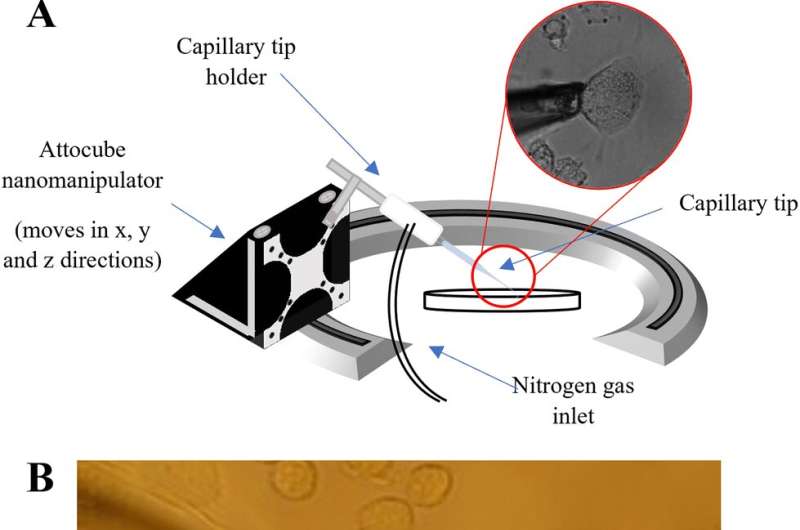This article has been reviewed according to Science X's editorial process and policies. Editors have highlighted the following attributes while ensuring the content's credibility:
fact-checked
peer-reviewed publication
trusted source
proofread
Drugs affect individual cells differently, new research suggests

A new state-of-the-art method that measures the amounts of drugs and lipids (fats) in individual cells could help health professionals target more effective treatments for diseases such as tuberculosis (TB).
Researchers from the University of Surrey were able to isolate individual living cells that contained drugs commonly used to treat TB and found that each cell absorbed the drug differently, and each cell had a unique lipid "fingerprint."
Dr. Holly-May Lewis, first author of the study from the University of Surrey, said, "There was a big variation in how much drug was found in each cell—this indicates that different cells absorb drugs differently. This could prove significant to improving our understanding of life-saving treatments—not only for TB but for other infectious diseases and cancer too."
In the study, the Surrey researchers demonstrated the use of a technique called nanocapillary sampling, where scientists use a microscopic tool to trap individual cells. The researchers then used another technique, liquid chromatography, to precisely measure the levels of drugs and lipids.
Professor Melanie Bailey, corresponding author of the study from the University of Surrey, said, "Surrey is one of the few places in the country where it's possible to experiment with these cutting-edge measuring techniques. We recently secured funding to establish a national research facility that will help researchers from the UK to make single cell measurements. If we are ever able to develop effective therapeutic methods to treat devastating diseases or fight the pandemics of the future, more out-of-box scientific thinking like this is needed."
The research has been published in the journal The Analyst.
More information: Holly-May Lewis et al, Nanocapillary sampling coupled to liquid chromatography mass spectrometry delivers single cell drug measurement and lipid fingerprints, The Analyst (2023). DOI: 10.1039/D2AN01732F
Journal information: Analyst
Provided by University of Surrey




















